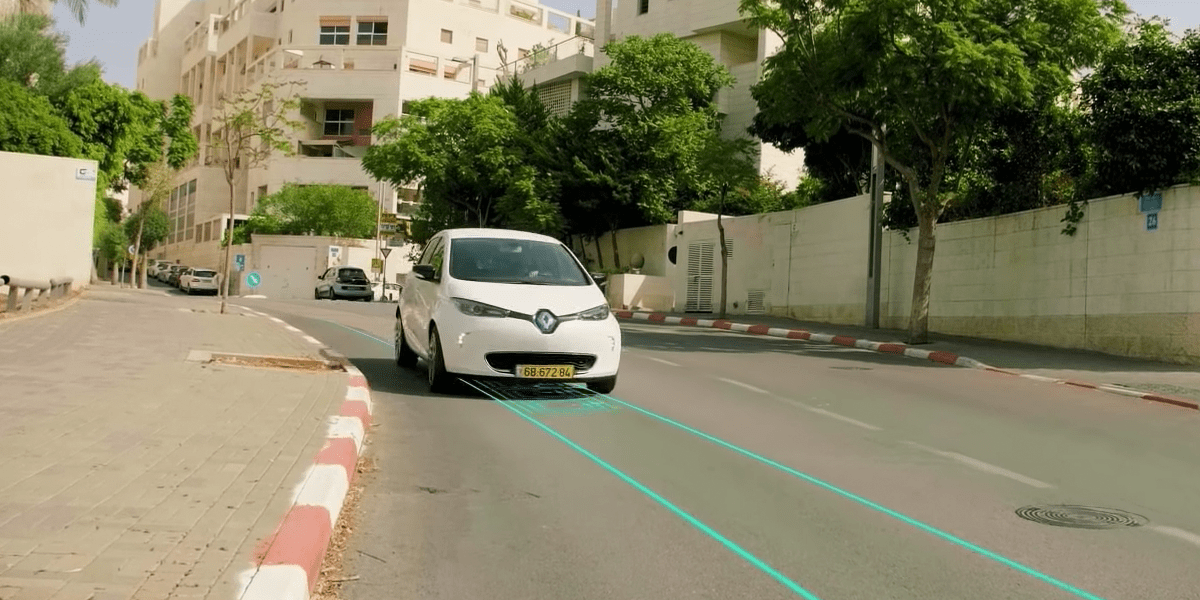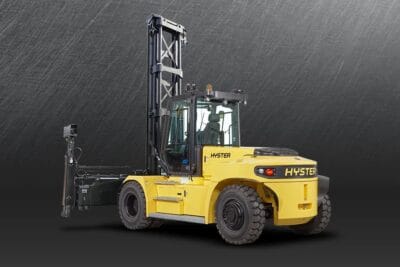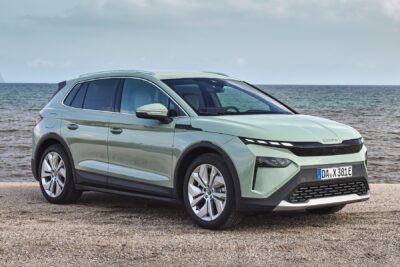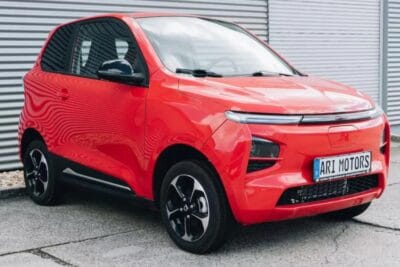ElectReon Wireless progresses dynamic charging in Israel
The Israeli company ElectReon Wireless has successfully charged a Renault Zoe inductively while driving. This was achieved along a 20-metre long section of track equipped with coils embedded in a section of road in the coastal town of Beit Yanai in Israel.
++ Kindly find an update to this article below. ++
During the test, ElectReon proved an energy transmission of 8.5 kW with an efficiency of more than 91 per cent. The company expects to be able to increase the transmission power to over 15 kW within the next few weeks.
The Israeli company says that these results are a key milestone in view of a large-scale public-private test project they have planned in Sweden. Using ElectReon Wireless technology, a 1.6 km long test track will be set up to inductively charge electric vehicles while driving between the airport and the centre of the city of Visby on the west coast of the Swedish Baltic Sea island of Gotland. The budget for the project amounts to 116 million Swedish crowns (around 11 million euros), and the project is scheduled to start in November this year.
With their technology allowing electric vehicles to charge while driving via coils embedded in the roadway, ElectReon has become an innovation driver in the field of dynamic inductive charging. The coils are embedded eight centimetres below the surface, invisible to road users, and only activated when a vehicle drives over them. The solution is compatible with all types of electric vehicles, including buses, trucks and cars, the latter of which can be fitted with a maximum 12 kg receptor, while heavy vehicles can carry larger units to optimise the charging process.
ElectReon says it has started to install its own receptors in two electric buses and a heavy-duty truck. The upgrade of the truck is to be completed in December before test runs are planned in Sweden in the first quarter of 2020. The buses will probably be ready in February 2020 and tested in April 2020 on prepared roads in Sweden and on Klausnerstrasse near Tel Aviv University in Israel.
ElectReon Wireless is already involved in several collaborations with its inductive charging technology. In the summer of 2018, the Israelis announced a partnership with the Renault-Nissan-Mitsubishi manufacturer alliance. Other partnerships have also been forged with the Israeli bus company Dan and the French company Hutchinson, among others.
Update 03 June 2020: While nobody has managed to not be affected by the pandemic, ElectReon Wireless is planning the next evolutionary stage of its technology: By mid-August, a two-kilometre track in Tel Aviv will be equipped with appropriate coils on which they will test the previously mentioned electric bus. The test had initially been set for April. The company is now in the final stages of coordinating the engineering work with various stakeholders like the municipality, utility companies and internet providers. Besides, the testing in Sweden will go ahead as well.
Electreon says it can electrify all of Tel Aviv’s main roads for $150 million, and the firm recently signed an agreement with German utility EnBW to test the technology in the city of Karlsruhe.
Update 22 September 2020: ElectReon Wireless has now launched its next pilot project in Israel as announced: In cooperation with the Dan Bus Company, electric buses will be charged wirelessly on a suitably prepared 600-meter-long section of track in Tel Aviv.
The route is two kilometres long and leads from the bus terminal at Tel Aviv University to Klatzkin Street in Ramat Aviv. On this stretch, some 600 metres of the route is equipped with the coils. The buses are now to be tested for two months, after which they will run regularly along the route using the induction technology.
Further technical data on the inductive charging solution in Tel Aviv are not available from Israeli media reports. It is still unclear how much energy the electric buses will absorb during the 600 meters of road embedded with induction coils.
Update 27 January 2021: ElectReon now announces that it has prepared asphalt sections on the above-mentioned road with a total length of approximately 700 meters and installed a static charging station at the Tel Aviv University bus terminal. In addition, the latest announcement from the Israelis mentions an electric bus from the Higer company, which was purchased for testing and has already been successfully tested at ElectReon’s test facility in Beit Yanai. The company expects that the electric road system will be connected to the power grid in the coming weeks and that the electric bus will then be able to start its trips on the public road. Apparently, then, the pilot project has not yet begun.
>> Additional reporting by Nora Manthey.
xinhuanet.com, globes.co.il, bloombergquint.com (update June), nocamels.com, globes.co.il, jewishpress.com (update September), electriccarsreport.com, insideevs.com, electreon.com (Update January 2021)





2 Comments